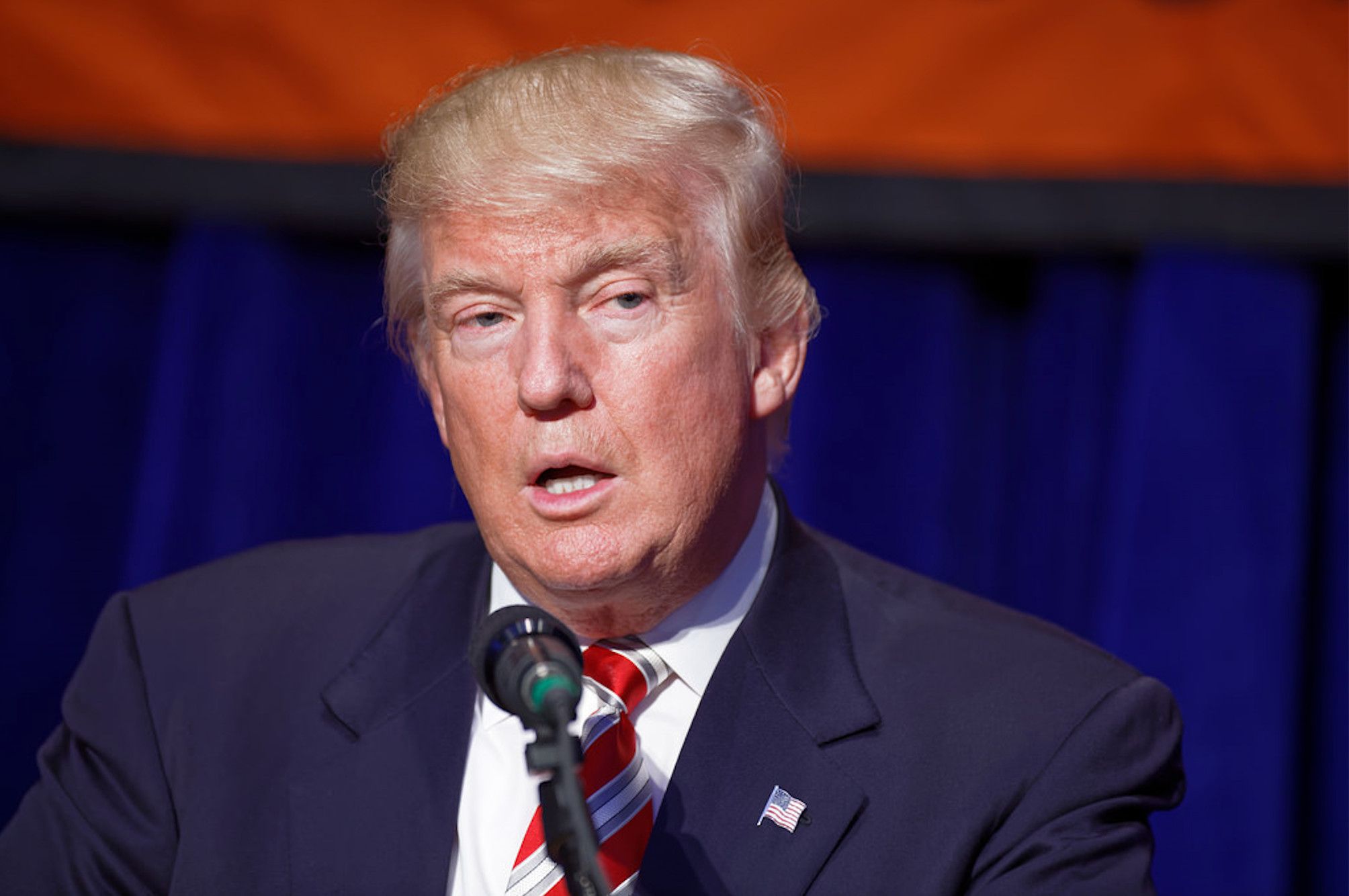Produce, Dairy Associations Urge Trump to Seek Other Trade Opportunities Following Trans-Pacific Partnership Exit
Also yesterday, more 130 U.S. food and agriculture industry representatives sent a letter to President Trump specifically asking the President to protect the opportunities of NAFTA.
Photograph by Michael Vadon/Wikimedia Commons/CC-BY-SA-4.0.

Following President Donald Trump’s decision to withdraw the United States from the Trans-Pacific Partnership (TPP) trade agreement, representatives of the U.S. produce and dairy industry are speaking out to encourage the president to protect U.S. import and export opportunities by continuing to establish other trade relationships.
President Trump signed an order yesterday to withdraw the U.S. from the TPP, a global trade agreement intended to foster trade among 12 nations: Australia, Brunei, Canada, Chile, Japan, Malaysia, Mexico New Zealand, Peru, Singapore, the U.S., and Vietnam. Congress has yet to approve the TPP deal after the deal’s proposal was finalized last year.
Following Trump’s action yesterday, the United Fresh Produce Association (UFPA), which represents members of the produce supply chain, urged the President not to abandon the TPP without establishing new trade deals in its place.
“We encourage President Trump and his new Administration not just to withdraw from trade agreements, but to come to the table to renegotiate agricultural agreements as soon as possible,” said UFPA president and CEO Tom Stenzel in a press statement. “Our potential trading partners won’t sit idly by, but will find other partners and leave the United States behind. Most importantly, America deserves real trade agreements that benefit both consumers and producers.”
Stenzel encouraged Trump to continue developing certain “key portions” of the TPP agreement, particularly those that relate to Asia Pacific trade. “Both U.S. agriculture and U.S. consumers benefit from trade, and exports to the Asian Pacific countries are a critical opportunity for U.S. producers.” He also pointed out that “the TPP was the first major agreement that began to build strong rules for countries to prevent putting up protectionist measures in the form of sanitary and phytosanitary barriers. Without this agreement, we fall back to an environment where countries can simply choose to block imports without scientific justification.”
Meanwhile, two U.S. dairy groups, the National Milk Producers Federation (NMPF) and the U.S. Dairy Export Council (USDEC), likewise urged President Trump not to abandon trade deals in the Pacific Rim and especially to protect the trade relationship between the U.S. and Mexico. Both NMPF and USDEC had supported the TPP agreement, stating that it would benefit U.S. dairy farmers.
“While we recognized that TPP as it now stands has no path forward, we urge the Trump Administration to look for future opportunities to increase our dairy exports in Asia and around the world,” said NMPF president and CEO Jim Mulhern in a press statement. “Our competitors have been successfully negotiating trade agreements over the past several years. This puts the U.S. agriculture sector at a competitive disadvantage if we don’t pursue our own initiatives.”
Like UFPA’s Stenzel, USDEC’s acting chief of staff Matt McKnight pointed out that the TPP did make progress on points such as sanitary and phytosanitary standards as well as by preventing “the abuse of geographical indications to block competition in common food categories.” McKnight suggested that the Trump administration replace TPP with bilateral agreements with countries like Japan, Vietnam, and Southeast Asia.
Also yesterday, more 130 U.S. food and agriculture industry representatives sent a letter to President Trump specifically asking the President to protect the opportunities of the North American Free Trade Agreement (NAFTA), pointing out that North America exports are a key source of business for U.S. food and agriculture. NMPF and USDEC, for instance, pointed out that Mexico is the number-one market for U.S. dairy exports, amounting to $1.2 billion in 2016.
In their letter to Trump, members of the U.S. Food and Agriculture Dialogue for Trade underlined the power of global export to U.S. food and agriculture: “U.S. food and agriculture exports have produced a trade surplus for nearly 50 years. Consistent growth over this period resulted in over $130 billion worth of exports, which created $423 billion in U.S. economic activity in 2015. These growing exports have increasingly become a vital share and important source of value to U.S. production. Over the past 25 years, the share of U.S. production that is exported around the globe has steadily risen in terms of both value and volume, proving that food and agricultural exports are a successful and valuable part of the U.S. economy.”
Also read:
Dietary Supplement Contract Manufacturing in a Time of Trump
From Trump to the FTC: 2017 Dietary Supplement Regulatory Issues to Watch
Jennifer Grebow
Editor-in-Chief
Nutritional Outlook magazine
jennifer.grebow@ubm.com

.png&w=3840&q=75)

.png&w=3840&q=75)



.png&w=3840&q=75)



.png&w=3840&q=75)









